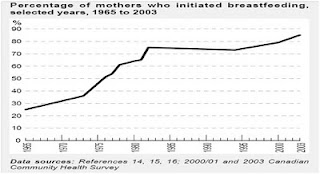Children are our greatest resource. It still amazes me how often governments can treat children as an afterthought since they hold minimal political value. That will only change when every person, including children are given a vote. (Speaking of which, kudos to Saudi Arabia for granting women the right to vote and run for office – and reminding us in Canada how privileged we currently are)
One of the key determinants of health is early childhood development. We know that from conception, affects on the mother can positively or negatively impact growth of the fetus. Brain development occurs mostly in the first 2 years of life, slowing down as we prepare our children to start school.
If you miss the irony of this statement - go back to birth.
In this simplified view of the multiple aspects of brain development, note that the central line is at age 1, and after that point all higher brain functions decrease their rate of growth.
It should not be surprising that schools that score well on geographic comparisons of test results tend to be located in areas of relative socioeconomic prosperity. Children with enriched infancy where parents can focus on nourishment through good feeding, stimulating play, social interaction and emotional warmth stand a far better chance of success in later years. Those children who are prepared for school, not surprisingly, are the children who do well at school. The inequities in school success are engrained before the formal education “system” greets the child as they walk into those hallowed hallways for their first time.
Can we shift our focus to attention around the first year of life, and not just ensure immunizations are completed? There are other successes as well.
National Breastfeeding Week is October 1- 7. There are many benefits to breastfeeding beginning with both physical and emotional nourishment. Initiation rates (Figure 1 in the link) in Canada are nearly 90% and have gradually moved upwards over the past decade. Breastfeeding rates in Canada 2001-2009 . The best news that we need to reflect upon, is at its lowest point in the early 1960’s, breastfeeding initiation was only about 25% with rates in Quebec as low as 10%. Here is a huge public health success that has been lost in the debates of year to year recent history and a culture of support for breastfeeding that needs to create an urgency to remain active. Over the past 50 years, or just two generations, a full reversal of culture has occurred. This exceeds any other public health success that comes to mind.
The more recent and appropriate gains have been made in sustaining breastfeeding through the full first six months of life (Figure 2 in the above link). Rates are currently only 25% of the current recommendation – and needs to be the focus of breastfeeding programs designed to support women through the full first 6 months. The best practices are in BC at33%. Nova Scotia needs to redouble its efforts with current rates of only 13% at 6 months.
Public health workers should take note that the medicalization of clinics designed to support a small percentage of women with breastfeeding pathology may be a barrier to efforts to achieving where the greatest benefit lies – in encouraging and supporting all families to breastfeed for the minimum of six months, and to do so without alienating and imposing guilt upon those that have not yet appreciated the shifting cultural tide.


Wow! This is the perfect blog I am looking this type of blog its awesome blog here , share great information about this topic. This informative blog helps many readers with their decision-making regarding the situation. Great articles and will look forward for more!ถั่ง เช่า ราคา
ReplyDelete